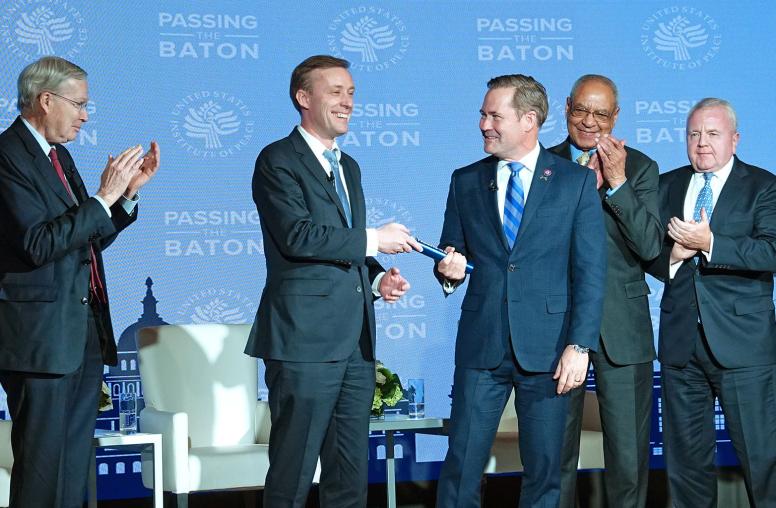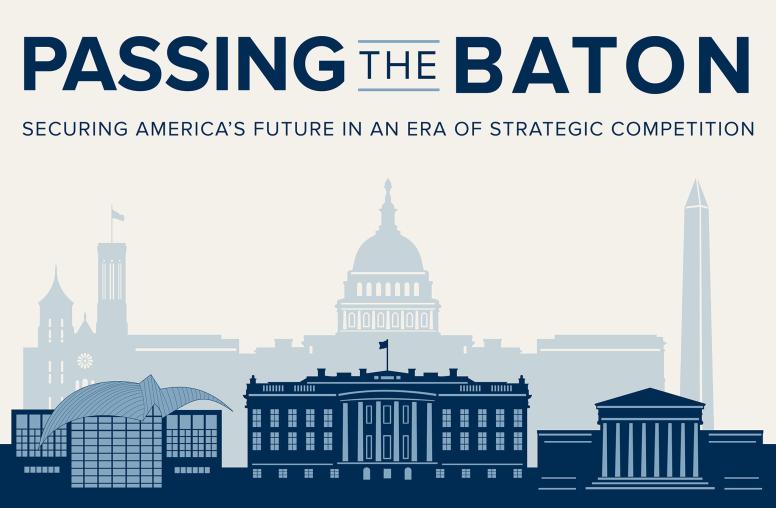USIP Fills Asia-Pacific and Economies Positions
For Immediate Release, August 7, 2013
Contact: Steven Ruder. 202-429-3825
(Washington) – Ethan Kapstein and Stephanie Kleine-Ahlbrandt, recognized experts in international economic relations and Asian affairs respectively, will join the United States Institute of Peace (USIP) this fall, the Institute announced today.
“As the shape and nature of conflicts continue to evolve, the Institute is constantly evaluating how best to apply our expertise in conflict prevention and mitigation. Ethan and Stephanie’s extensive experience will be invaluable assets for USIP in the ever important fields of peace economics and Asian affairs,” commented USIP President Jim Marshall. “Peace is good for business, and, when done the right way, business can help build peace. The Asia-Pacific region presents tremendous opportunities for inclusive, stable development. I look forward to continuing USIP’s tradition of innovative solutions in these areas with Ethan and Stephanie.”
As senior advisor to USIP’s Economics, Business, and Peacebuilding Center, Ethan Kapstein will help the Institute as it builds its research and programmatic agenda at the intersection of economics, security, and development. Kapstein is currently a senior director for research and decision analysis at the McCain Institute for International Leadership at Arizona State University and visiting fellow at the Center for Global Development. An international economic relations specialist and author of eight books, the most recent of which is AIDS Drugs for All: Social Movements and Market Transformations (Cambridge University Press 2013, with Josh Busby), he is a retired U.S. Naval Reserve officer who previously held academic positions at the University of Texas at Austin, INSEAD, the University of Minnesota, and Harvard University.
Stephanie Kleine-Ahlbrandt joins USIP late this month as director of Asia-Pacific programs. In addition to managing existing programs, Kleine-Ahlbrandt will develop new projects to prevent, manage, and resolve conflicts in the region. She is currently based in Beijing as the North East Asia project director and China advisor for the International Crisis Group where she undertakes research and analysis on the role of China in conflict zones around the world. Kleine-Ahlbrandt has previously worked with the Council on Foreign Relations, the United Nations, and the U.S. State Department. She holds a master’s degree in international relations from the Graduate Institute of International Studies of the University of Geneva, Switzerland.
###
The United States Institute of Peace is an independent, nonpartisan conflict management center created by Congress to prevent and mitigate international conflict through nonviolent means. USIP works to save lives, increase the government’s ability to deal with conflicts before they escalate, reduce government costs, and enhance national security. USIP is headquartered in Washington, DC. To learn more, visit www.usip.org.



